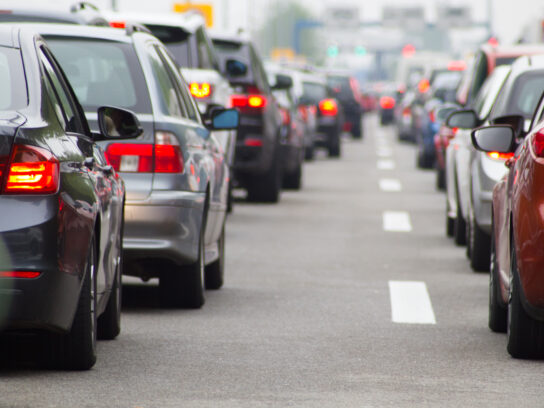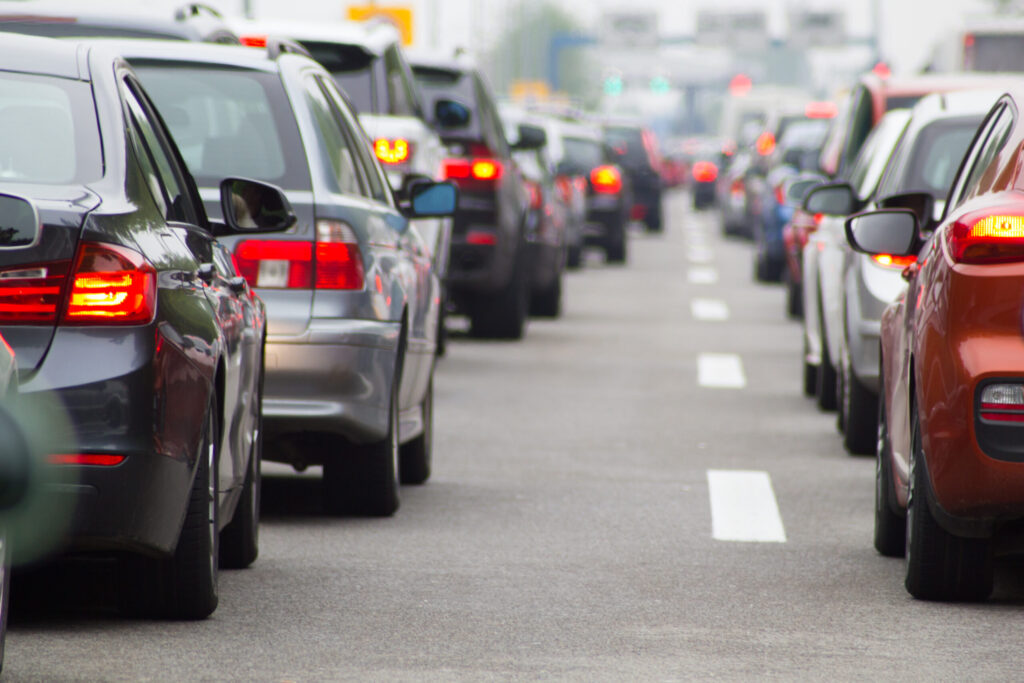
AAA predicts a busy Memorial Day weekend, with 43.8 million travelers expected to travel more than 80 miles from home. This is a 4% increase over last year and almost equals the record number of 44 million travelers set in 2005.
“We haven't seen numbers like this in almost 20 years,” said Paula Twidale, senior vice president of AAA Travel. “We're projecting 1 million more travelers than 2019, which suggests we're in for a very busy summer travel season.”
Records are likely to be set on road trips. AAA predicts 38.4 million people will travel by car, the highest number since his tracking began in 2000. This number is 4% higher than last year and 1.9% higher than 2019. Traveling by car remains popular due to its convenience and flexibility.
Gasoline prices should be similar to last year's national average of $3.57 per gallon. Prices rose this spring but have stabilized in recent weeks. However, it is likely to increase once the summer driving season begins. Oil prices remain a wild card, affected by conflicts in the Middle East and Ukraine.
Airports are preparing for a surge in travellers. AAA forecasts the number of air travelers to be 3.51 million, an increase of 4.8% from the previous year and 9% from 2019. Memorial Day weekend will be the airport's busiest since 2005. Ticket prices are about the same as last year, with increases of 1% to 2%. Domestic flights increased by %. Factors that affect airfare include destination, number of stops, and fare class.
Nearly 2 million people will use other means of transportation, including buses, cruises and trains. AAA predicts that the number of travelers in this category will be 1.9 million, an increase of 5.6% over last year. “This category has been the hardest hit during the pandemic,” Tweedale said. “Five years later, we’re back to 2019 numbers.”
Traffic data provider INRIX advises drivers to leave earlier on Thursday or Friday to avoid commuter gridlock. If they're heading home on Sunday or Monday, they should avoid the afternoon hours. “Travel times are expected to be up to 90% longer than normal,” said Bob Pichoux, a traffic analyst at INRIX. “Travelers should use traffic apps, 511 services and local news stations to avoid long delays.”
The best and worst times to travel by car
- Thursday, May 23: Worst: 12pm to 6pm. Best: before 11am, after 7pm
- Friday, May 24: Worst: 12pm to 7pm. Best: Before 11am, after 8pm.
- Saturday, May 25: Worst: 2-5 p.m. Best: before 1pm, after 6pm
- May 26th (Sunday): Worst: 3pm to 7pm, Best: Before 1pm
- Monday, May 27: Worst: 3 to 7 p.m. Best: After 7 p.m.
Subway congestion peak
- Atlanta: Atlanta to Savannah via I-16 E, Saturday 4:45 p.m., 5 hours and 31 minutes, 54% increase
- Boston: Manchester to Boston on I-93 S, 8:45 a.m. Sunday, 1 hour 48 minutes, 50% increase.
- Chicago: Milwaukee to Chicago via I-94 E, Sunday 4:30 PM, 2 hours 25 minutes, 27% increase
- Denver: Fort Collins to Denver via I-25 S, Sunday 16:15, 1 hour 24 minutes, 56% increase
- Detroit: Kalamazoo to Detroit, via I-94 E, Sunday 8:45 p.m., 2 hours 48 minutes, 40% increase.
- Houston: Galveston to Houston via I-45 N, Sunday 5:00pm, 1 hour 11 minutes, 73% increase
- Los Angeles: LA to Bakersfield via I-5 N, Thursday 6:15pm, 2 hours 45 minutes, 84% increase
- Minneapolis: Eau Claire to Minneapolis on I-94 W, 8:45 a.m. Monday, 1 hour 47 minutes, up 38%.
- New York: New York to Albany via I-87 N, Thursday 11:45 a.m., 2 hours 37 minutes, 64% increase.
- Philadelphia: Philadelphia to Baltimore/DC via I-95, 7:30 a.m. Friday, 2 hours and 1 minute, up 43%.
- Portland: Hood River to Portland via I-84 W, Monday at 6:30 p.m., 1 hour 20 minutes, up 42%.
- San Diego: San Diego to Palm Springs via I-15 N, Friday 6:15 p.m., 3 hours 4 minutes, 34% increase.
- San Francisco: San Francisco to Napa via I-80 E, 11:00 a.m. Friday, 1 hour 25 minutes, up 56%
- Seattle: Ellensburg to Seattle via I-90 E, Sunday 4:30 p.m., 2 hours 34 minutes, 58% increase.
- Tampa: Gainesville to Tampa via I-75 S, 9 a.m. Sunday, 3 hours 47 minutes, 88% increase.
- Washington DC: Washington DC to Baltimore via Balt/Wash Pkwy N, Friday 2:15pm, 1 hour 21 minutes, up 72%
Source: AAA, INRIX
Nationally, #AAA predicts more than 42 million people will travel this Memorial Day weekend, a 7% increase from last year. translator, AAAMD News, @OCMD, @WRAP_org, #MDTAPolice, @MDSP & @AAADCNews will release local # and road safety/travel updates weekly from today. pic.twitter.com/6W8WpnjIY9
— AAA Mid-Atl MD News (@AAAMDNews) May 17, 2023


